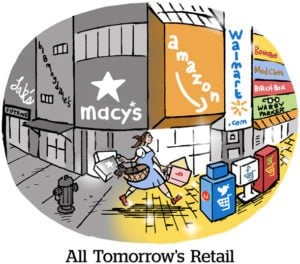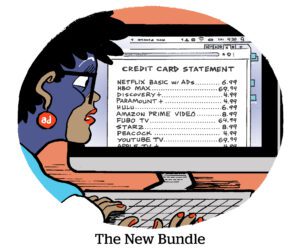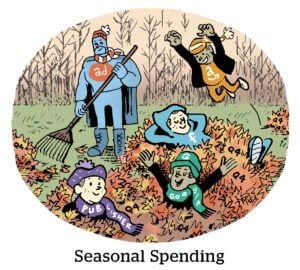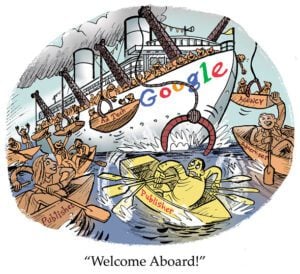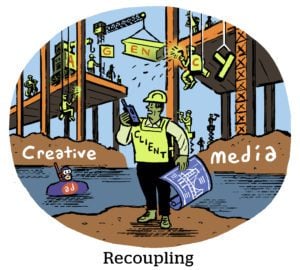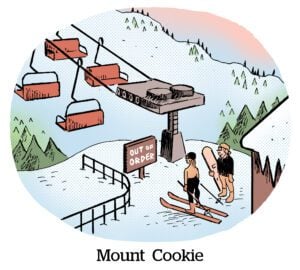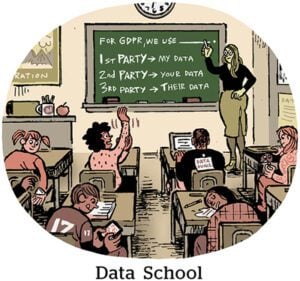Here’s today’s AdExchanger.com news round-up… Want it by email? Sign up here.
Selling Cells
Kochava lost its motion to dismiss the latest suit brought by the FTC, which is targeting its location and consumer data sales business on the grounds it constitutes a privacy invasion and, thus, a consumer harm.
It’s the second such lawsuit by the FTC against Kochava. The first was dismissed last year. This time, regulators sold Idaho’s US District Court on the notion that Kochava assembles consumers into holistic profiles – it doesn’t just sell geolocation data, but uses app browsing history, demographic info and device data to generate its own inferences.
The case is also notable because it continues a trend – which has accelerated in Europe – of privacy issues being tied closely to consumer protection claims.
Cellphones have become “almost a feature of human anatomy,” the US District Court judge cites from a recent Supreme Court decision.
Unlike GPS monitoring of real-time location data, the court has established precedent that the complete picture about someone that comes from tracking their phone – which often takes the form of location data but can be connected to intimate personal insights – is a new kind of hybrid privacy/consumer violation.
No Cookies? Let Them Eat Cake
For the millionth time, marketers heard alarm bells signaling the end of third-party cookies and hit snooze.
The alternative ID solutions that might/could/should/would replace third-party cookies don’t have much substance. UID2, LiveRamp’s RampID and many other alternative IDs still process third-party cookies and have little scale without them.
And for brand marketers, the so-called third-party cookie apocalypse is distant thunder. They still collect first-party cookies, after all.
The detriments of third-party cookie deprecation for brands’ digital advertising supply chains won’t be obvious until cookies disappear and the machinery starts to break.
But that’s the ad tech nightmare scenario – like a restaurant where chaos in the kitchen spills into the dining room and sends patrons scurrying.
And marketers are completely over third-party cookie discourse. (Fair enough.)
“We have a few clients whose eyes glaze over whenever this topic has come up in recent weeks,” an agency buyer tells Digiday. “We’re doing the legwork now … so that we can go back to our clients and say this thing isn’t completely shrouded in conjecture anymore.”
Pain Killers
The chickens have come home to roost for Publicis, which achieved an inglorious milestone: It’s the first ad agency forced to pay for its contributions to the opioid crisis.
Publicis Health, Publicis Groupe’s health care division, agreed late last week to pay $350 million to settle claims that its ad campaigns for drug manufacturers like Purdue Pharma helped fuel the US opioid epidemic, the WSJ reports.
From 2010 to 2019, Publicis produced marketing materials for Purdue-manufactured opioids OxyContin, Butrans and Hysingla. The ad agency created ads and promotional pamphlets that falsely described OxyContin as a safe, nonaddictive drug. Publicis was also central to Purdue Pharma’s “Evolve to Excellence” campaign strategy, which targeted doctors who prescribed OxyContin with messages meant to promote higher dosages for patients.
Publicis is only the latest company to settle a suit regarding its role in the opioid epidemic. That particular wall of shame includes Purdue, Johnson & Johnson, CVS, Walmart and the McKinsey consultancy.
Publicis doesn’t officially admit it did anything wrong, though.
But Wait, There’s More!
Expedia is rolling out the first global campaign on Netflix. [Ad Age]
Netflix isn’t a threat to Hollywood. YouTube should be the real concern. [The Ankler]
Musk’s X is flooded by spammy ad campaigns, many reportedly paid for with stolen credit cards. [The Information]
Eurovision releases a free DTC service for European sports leagues. [Variety]
A postmortem on Condé Nast’s doomed acquisition of Pitchfork. [Semafor]
Microsoft enters AI partnerships with Semafor and other news organizations. [Reuters]
You’re Hired!
Susan Credle to become IPG’s first-ever creative advisor. [release]



